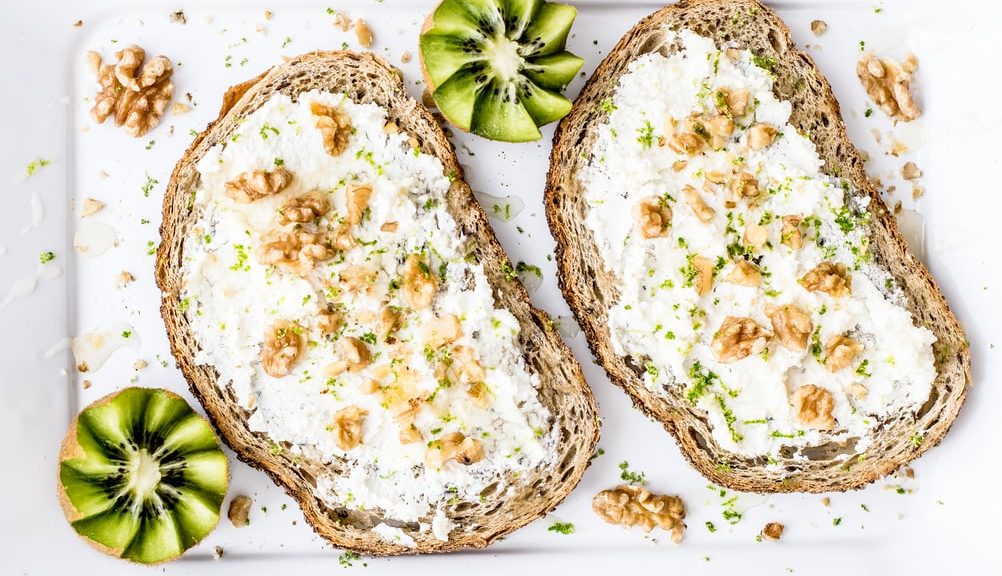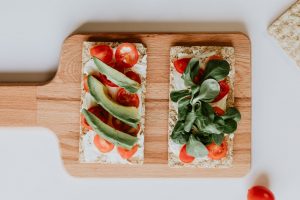
Eating during lockdown
Your nutrition during coronavirus times: recommendations by our dietitian and nutritionist
Because of the COVID-19 pandemic, most of us have been in lockdown and self-isolation for some weeks now, in many parts of the world. This situation of confinement has broken all our daily routines. It is a very new situation for all of us and we might notice, that these changes are affecting us, on a psychological level and also in the way we eat: our eating habits and nutrition.
How is what we eat changing during lockdown?
Much is being said these days about food and coronavirus. First of all, we want to be clear that no food or food supplement prevents, treats or cures Coronavirus. It seems obvious, but there have been several jokes and fake news circulating these days about this. What will keep our immune defenses in a best possible way, not only now but always, is to keep good health habits and follow a healthy and balanced diet.
Regarding food and coronavirus, perhaps two of the most asked questions to Dietitians/Nutritionists these days are: on one hand, what to buy and on the other hand, how to avoid the anxiety of eating more and worse.
Let’s answer your biggest doubts in the following 10 key points.

Your nutrition during coronavirus times:
- Set meal time schedules and routines. We know and appreciate that whilst being immersed in this health emergency situation, each and every family has very unique situations, both personal and professional. But, within each individual situation of circumstances, psychologists are recommending us to maintain, as far as possible, some schedules and routines for our daily life: when getting up and get dressed, working from home and when eating. Try to plan your family’s meals in advance and set a more or less fixed schedule, as similar as possible to what they used to be.
- Avoid anxiety. Anxiety is very bad company: it affects our everyday health and also our diet. Each person suffers it differently, but because of anxiety, and the lack of planning mentioned above, most of us tend to eat more and worse. In addition to controlling anxiety on a psychological level, try to turn it around and think positively: take advantage of the fact that you are now at home more often to dedicate time to all those things you like and for which you usually don’t have time, including cooking.
- Cooking can also be a valuable therapy. One of the things we hear most often at our nutritionists clinic is “I don’t have time to cook” or “I need quick ideas because I don’t have enough time in my everyday life. Take advantage of the fact that now we have enough time at home, to take those recipes out of your drawer and cook more.
- Choose healthy snacks. There are many healthy snack and grazing options to choose from between meals, such as fresh and dried fruit, a handful of nuts, dairy products without added sugar like natural yogurt or kefir, a glass of plant based juice/drink without sugar, wholemeal bread dipped in some olive oil, carrot sticks with hummus or vegetable pate, fresh cheese, homemade cakes or biscuits using healthy ingredients and without sugar (wholemeal flour, eggs, milk or plant based substitute, fruit, pure cocoa).
- Don’t buy what you don’t want to eat. This is one of the most effective tricks, but at the same time, one of the most common mistake we make. We know that when we buy an unhealthy product, we will eat it at home when we feel anxious or bored, so it is much better to just not buy it at all in the first place. It’s that simple. This is the single best strategy to avoid eating unnecessary food. Instead, add some of the items from the previous point to your shopping list.
- Pay attention to the quality of all your meals throughout the day. What we eat between meals is very important, but pay also attention to the food groups that are part of our main meals during the day: fruit and vegetables, pulses, wholemeal grains, olive oil and other healthy fats such as nuts and seeds. Another important advice is to reduce our consumption of salt, sugars and red and processed meats.
- Do a healthy, sustainable and responsible food shop. We have been assured by now that we are not going to run out of food. But, since we should leave home to shop as little as possible, we can fill our shopping basket with fresh food items and then freeze them at home in portions. Other healthy long lasting food includes canned vegetables or fish, pasta or cereals, nuts, frozen vegetables, dried pulses or vegetable protein such as tofu or textured soya.
- When there are children in the household, involve them in your mealtime routines. This is a recommendation we always give, but now more than ever, try to include them deciding the activities that you are going to do as a family, what you eat and, even better, prepare and share all the chosen recipes together!
- Stay active, also at home. Don’t forget to keep staying physically active from home. How? Luckily, nowadays we have a lot of good and free online resources available to choose the exercise that best suits our needs and do them at home. And when? At the time of day that suits you best, but it is important to set a routine, a habit and do it alone, or even better, together as a family!
- Always follow the basic guidelines for food safety: as a precaution and because it is part of general hygiene, it is essential to follow the 4 key steps of food safety: clean (food, surfaces and utensils), separate (raw and cooked), cook well (the food you are going to eat) and chill (store cooked food that you don’t eat that day in your fridge or freezer).
(This post was written by Laia Rovira, dietitian and nutritionist specialized in children’s nutrition at LactApp and translated by LactApp UK – www.laiarovira.com)